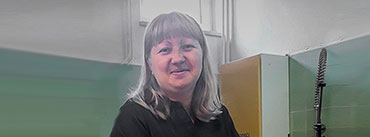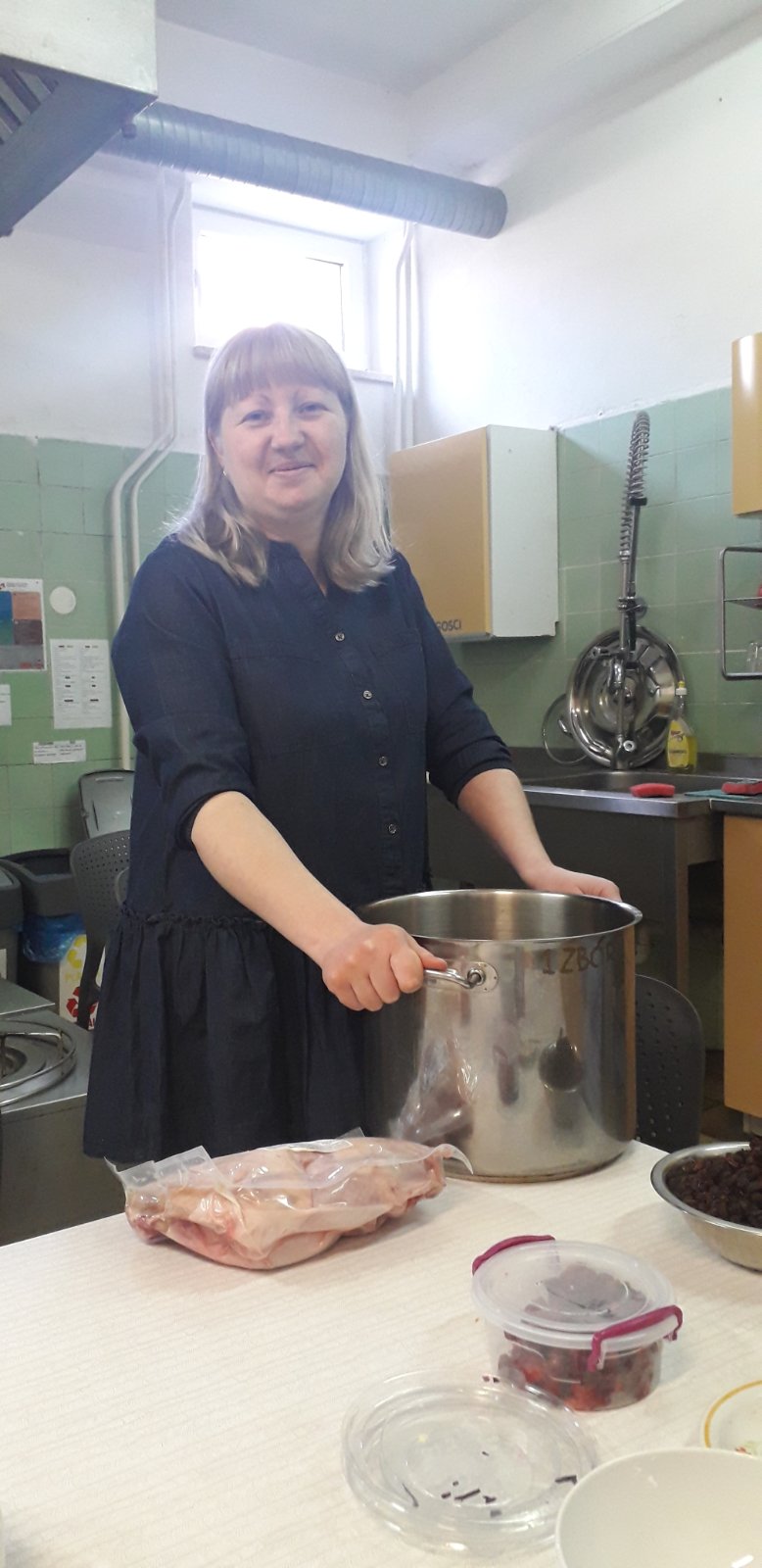
Editor’s Note: The image below was provided by an SGA-supported church in Poland.

Many Ukrainian refugees have found hope and shelter at SGA-supported churches in Poland. Svetlana, a dear mother of two girls, 14 and 10, recently shared their story with one of the pastors in Poland.
Svetlana began her story of the war in the same way as most refugees from Ukraine do, “We just lived our ordinary, peaceful lives. My husband was a coal miner at the [local] mine, and I was a postal worker. Our daughters attended school. Of course, we did not believe or suspect that this could happen. We couldn’t even think that Russia would treacherously attack us and just destroy the whole normal lifestyle of our family and the whole country.”
When the war started, Svetlana was at home and her husband had the day of. She learned from her acquaintances about Russia’s invasion of Ukraine, and like most Ukrainians that day, she could not believe it. Of course, they found out later and were horrified that it turned out to be terribly true.
Svetlana says, “Then we continued to go to work, even though there were military actions and shelling somewhere nearby. Then [the opposition] began to get closer and closer to us, and they started shelling [a Ukrainian city], which was closest to them. After that, they completely “demolished” [another Ukrainian town which was a traffic crossroad]. People from these affected cities were evacuated to the Red Cross stations in [other Ukrainian cities].”
“Our entire family was sitting at home,” recalls Svetlana, “but we found out that they could completely close the city. We realized that we needed to make a decision to leave the city in advance. And it turned out to be the right decision. As soon as my daughters and I left, the authorities announced the evacuation of women, children, and the elderly because active hostilities were conducted very close to our city already. We knew that heavy shelling was already taking place [in other Ukrainian cities], and that there was heavy destruction, along with dead and wounded.”
Talking about their “military” life in [their city], Svetlana also recalls that on March 16, there was a heavy “arrival” close to their home. “We were resting at home at that moment. We jumped off our beds and ran into the corridor, where there were load-bearing walls. We were in the corridor until the shelling was over. Furthermore, we were scared, but it was our daughters who were the most scared. We never went down into the cellar because we might not be able to come out in case of a potential blockage. We used to hide in the corridor and stand in the doorways.”
“In addition to the shelling,” Sveta says, “after a week from the start of the war, groceries started disappearing from stores in [our city], there was no delivery of medicine or medical devices. Supplies to [our region] were completely cut off due to the military situation. People brought, and now bring, everything from [a nearby city]. Prices have nearly doubled. It is good that we managed to buy some cereals, macaroni, and sugar in the first days of the war. Praise God, it saved us, and we were not hungry. Svetlana and her husband went to work, and the children stayed home alone. Sveta recalls this and cries, “I am at work, worried and praying for my daughters at home, that if there is a sudden shelling that they will have time to hide in the corridor. And there was also worry about myself: whether or not I would make it to the basement at work on time.”
Such intense nervous tension and, most of all, all these worries about her daughters caused Svetlana to leave [their city] and take her children away from the horrors of war. On March 17, she and the girls left for [another city]. There, at the train station, they could barely get on the train because of the crush of people. Then they were in a crowded train, in the stifling heat and without water, all the way to [another city]. And later, the volunteers who were at the train station gave them sandwiches and hot tea. From [this city], Svetlana with Kira and Alexandra went to [another city], and from [there] they went to [a city in Poland]. But there was nowhere to stay because the city was crowded with refugees.
Through Svetlana’s cousin (he is a Baptist), they found a Baptist church in [another Polish city]. The brother talked to Maxim, the pastor of the church, and Sveta and her children and friends, whom she met on the way, were picked up from the train station. They were met by volunteers from the church, Nikolai and Marina, who help the refugees. Artur, our brother from a Polish Baptist church, helped Svetlana and her friends find jobs. Sveta and her children live on the premises of this church with other refugees from Ukraine. The women take turns cooking hot meals for everyone and taking care of their children. (Sveta in the photo with a pot in the church kitchen).
Sveta’s husband Alexander stayed [in their city in Ukraine] in their home and continues to go to work and mine coal at the [local] mine. Sveta says, “Yes, he works, pays taxes into the budget of Ukraine, produces coal for Ukraine and supports the economy of our country during this horrible time of war. He is all alone in the house. But Alexander is responsible for the animals that were left at home. He looks after his two dogs, a cat, fish, and parrots. And recently, he also took pity and took the neighbor’s dog that was left there.”
“We will definitely return to Ukraine,” Sveta says with tears in her eyes. We are really looking forward to it, hoping and believing that there will be peace soon. We will return to our home: I will return to my husband and my daughters to their father.”
Svetlana also said she was amazed that the Poles, the most ordinary people, took care of them as they made their way to their destination. “They stopped by the train at the stations and gave the children toys, coloring books, water, candy, and wet wipes.” Sveta burst into tears when she talked about it. She was deeply touched by the help from Poland. She says:
“These are people who have a big heart. I thank God for them.”
In a time of great uncertainty, God is bringing help, healing, and hope to the people of Ukraine through SGA-supported pastors, churches, a seminary, and SGA-sponsored Compassion Ministry. Be a part of God’s incredible work with your generosity and prayer support.
Your gift of compassion helps struggling people with emergency aid that generally includes Scripture materials, food, medicine, warm clothing, and shoes.